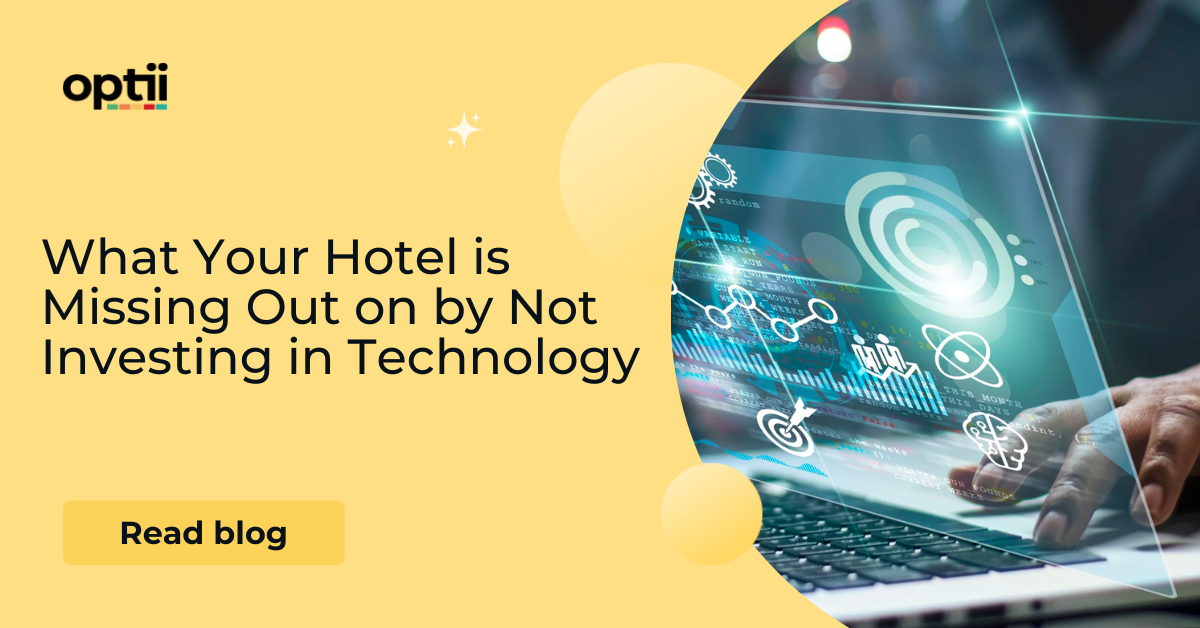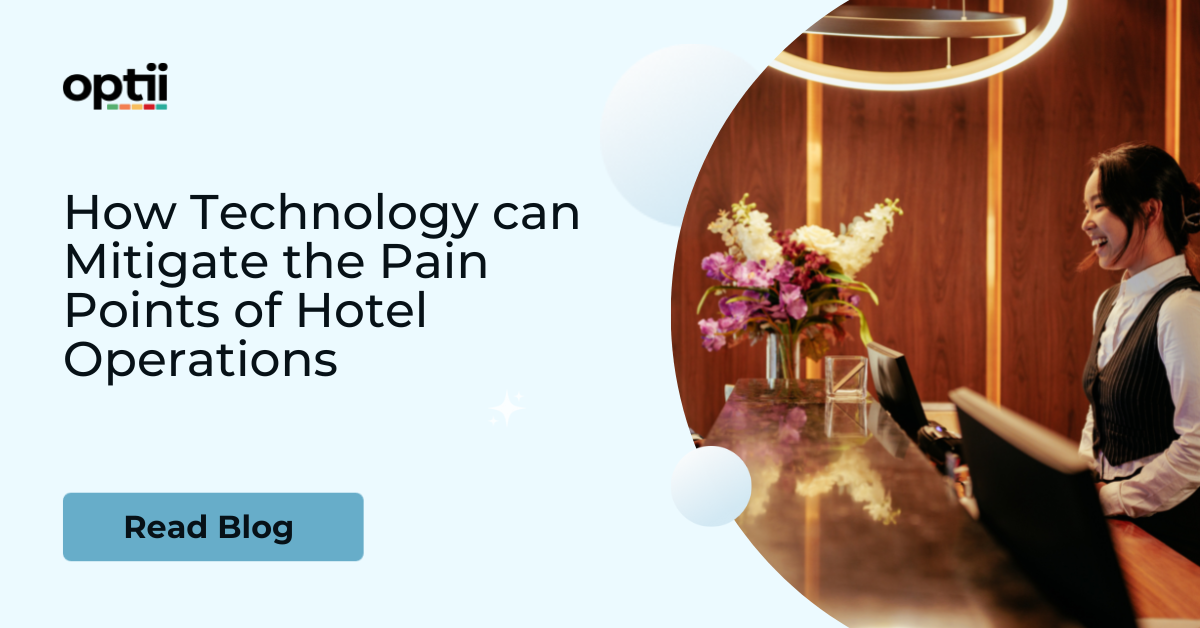What your hotel is missing out on by not investing in technology
People have always been at the heart of hospitality. In light of this, it’s no surprise there has been some reluctance from industry players to adopt technology, with speculation about it replacing human jobs and fears about ‘Big Brother’ watching staff members’ every move being some examples of these reservations.
With challenges in the labor market persisting in terms of attracting and retaining talent, increased costs due to inflation, and therefore increased guest expectations, it’s becoming harder for hotels to ignore the support technology can provide. In this piece, we outline some of the key challenges facing the hospitality industry when looking at technology adoption and outline the benefits of a rethink in this area.
Why has hotel technology uptake been so slow?
Airports, for example, have been storming ahead of hotels in terms of technology adoption. Digitization has improved security measures and biometrics (facial recognition) have made the travel experience more seamless. So, why have hotels been left behind?
Some hotel managers are resistant to change as they are comfortable with their existing way of working. Managers who do not have a background in technology will be more familiar with traditional methods of operation. Also, some hoteliers are only looking 2-3 years down the line due to the industry having high turnover, understandably making them risk-averse to investing in technology that may not show immediate results.
The hotel industry's focus on short-term return on investment (ROI) instead of long-term sustainable investment in critical areas has led to its lagging behind other sectors. While analyzing metrics like RevPAR and ADR is beneficial for ascertaining profitability, hoteliers should not overlook the importance of the frontline team responsible for the day-to-day operations. It is crucial for them to consider offering technological support to ensure both the team and the property operate at their best possible level.
Some hoteliers are fearful of technology becoming a replacement for personal interaction. But, in reality, one of the advantages of employing technology solutions in your hotel is that it can enhance the guest's stay by delivering more personalized experiences. These include logging preferences and requests so they can be deployed for the guest’s next trip, which drives customer loyalty, encourages positive reviews and generates revenue gain.
It’s clear there are several complex issues hindering technology uptake in hotels. Let’s address these further, and explore some additional use cases that demonstrate the potential of hotel technology.
Moving the industry forward
Hoteliers unfamiliar with hotel technology often assume it adds complexity to the operational process of the property. But, in practice, it can streamline operations and support the team in their day-to-day activities. The goal of hotel technology is to provide staff with a centralized system that automates tasks and promotes synergy, one that removes complexity and difficulty rather than adding it.
Hoteliers focused on short-term ROI are hesitant to invest time and capital in the technologies they perceive to be expensive or clunky. While this is understandable at a time of soaring costs and in busy hotels where implementation might be difficult, the benefits of future cost-savings and staff retention will massively help a hotel’s bottom line in the long run. Reducing the risk of operational breakdown means hotels are in a much stronger position to consistently provide quality guest experiences. What’s more, implementing features such as chat channels provides immediate benefits by opening up quick and accurate lines of communication to replace ineffective radio dialogue.
By preventing human error and avoiding lapses in communication, technology hugely minimizes the chances of a guest’s request or problem going unresolved. Moreover, when these requests or issues are inevitably raised, the hotel is in a strong position to respond rapidly. This, in turn, maintains the hotel’s reputation, customer satisfaction, and the functional integrity of the property.
As discussed, technology is also key for staff retention and promoting productivity. It allows for targeted training, feedback and rewards, provides visual checklists for new housekeepers to get them up to speed quickly, and chat channels equipped with the inline translation feature encourage accurate communication to promote operational efficiency and boost team togetherness. Especially in such a challenging labor market, hotels can lean on technology to fully empower their staff both as individuals and as a collective.
The cost-saving and efficiency capabilities of hotel technology are also vital. By enabling hotels to do more with fewer staff members, technology keeps the property running and generating revenue while limiting costs like expensive outsourcing of housekeeping. This is particularly important in combating labor shortages. Technology also highlights important metrics in one the most largest departments of a hotel; housekeeping. Metrics such as room attendant cleaning time can be monitored to identify time drain and devise strategies to overcome this and fully optimize the daily operation of a property.
As we’ve seen, technology has the potential to usher in a new era for hotels. While they continue to battle their way back from pandemic woes, economic challenges, and labor shortages, hoteliers can turn to technology as an ally to depend on. The diverse benefits it offers have the potential to provide smooth, memorable, and personalized experiences for guests, all the while making staff comfortable and content.






